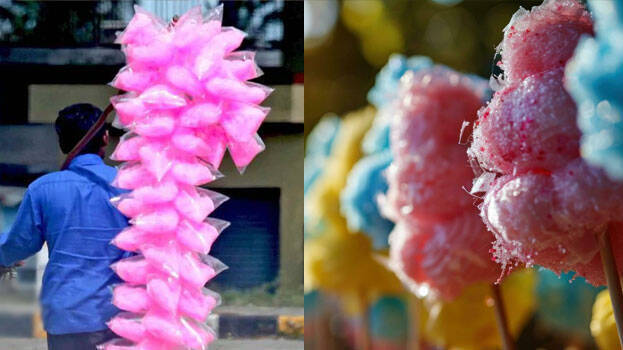Cotton Candy’s Pink Secret: Understanding Karnataka’s Rhodamine B Ban
Unveiling the Risks and Solutions Behind Pink Food Coloring

Imagine enjoying fluffy pink cotton candy, a delightful treat often found at fairs and carnivals. However, what if this vibrant color posed a hidden risk? This concern lies at the heart of the recent ban on Rhodamine B in the Indian state of Karnataka.
What is Rhodamine B?
Rhodamine B is a bright pink dye commonly used in various industries, such as textiles and plastics. Unfortunately, its affordability sometimes leads to its misuse as a food coloring agent. Here are a couple of instances where it might be found:
Cotton candy: This dye lends the sweet confection its eye-catching pink hue.
Gobi Manchurian: A popular dish that might be tinted a deeper red with Rhodamine B.
Why the Ban?
The issue with Rhodamine B lies in its unsuitability for consumption. Studies indicate that it can pose risks to health, potentially resulting in:
Cell damage: Leading to various health complications over time.
Cancer risk: Though ongoing research, it is suggested that Rhodamine B may have carcinogenic properties.
Ensuring Your Safety:
The ban in Karnataka serves as a crucial step towards guaranteeing food safety. Here’s what you can do to protect yourself:
Stay Informed: Keep an eye out for unusually vibrant colors, especially in street food.
Ask Questions: Don’t hesitate to inquire about the ingredients, especially if you have concerns.
Choose Wisely: Opt for reputable vendors who prioritize food safety and hygiene.
Important Notes:
Safe alternatives for food coloring are available.
Your health should always come first.
In Conclusion:
The prohibition of Rhodamine B underscores the significance of regulating food additives. By remaining informed and making conscientious choices, you can ensure a safe and enjoyable culinary experience.




